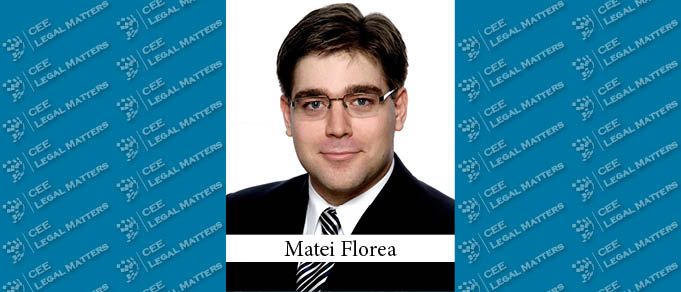Things continue apace in Romania, according to Schoenherr Partner Matei Florea. "It’s not slow, let me put it like this,” he says. "It’s the current new normal, with very diverse projects running at very diverse speeds. We’ve had it for a couple of years and it's professionally both challenging and satisfying.”
According to Florea, changes to the fiscal regime that went into effect on January 1, 2018 have essentially ended the sale of NPL portfolios for the time being, but “single ticket distressed bank assets changing hands — that’s still happening,” he says, "and there is quite a lot of portfolio management and servicing work that we assist with.” If the Government were willing to amend these changes, he explains, several NPLs portfolios would probably come to market. “There are still several billions out there to change hands, which would help the entire banking sector and the economy overall get in better shape.” But for that to happen, he says, “banks will need to lobby to change the tax regime.”
Similarly, consolidation in the banking sector has slowed at the moment. Florea says that “a couple of banks are rumored to come to the market, but when and whether they will actually happen is unclear, depending to a large extent also on the uncertainties resulting from numerous changes in legislation, such as the controversial Government Emergency Ordinance 114," which, he explains, "was introduced at the end of 2018 and amended after only a few months due to pressure from the business environment and international organisms, [and] introduced new taxes for key sectors (banking, private pensions, energy, telecom) in the name of social justice."
Still, work is coming from different areas. According to Florea, “we’re doing a lot more regulatory work, coming from a lot of sources, including changes in EU regulations — particularly involving e-commerce, cyber-security, and of course the GDPR — as well as from local/Romanian changes.” He also refers to “a number of changes in past practices and in the people who run various agencies in Romania, like the Consumer Protection Agency, leading to an uptick in high stakes retail banking-related litigation.”
The lead-up to the presidential elections scheduled for November, Florea says, has caused a chill on some deals — and the possibility that parliamentary elections otherwise scheduled for 2020 might be moved up to this fall as well hasn’t helped. According to Florea, “combined with the new tax on bank assets legislation, we had transactions that stopped immediately.” According to him, “obviously sellers and investors alike are holding back.”
Yet he emphasizes that he’s not unduly pessimistic. "There’s also positive. There are still opportunistic investors, in particular those looking at distressed assets, and we have been working more with PE funds looking at distressed situations. There’s more restructuring work than before (both before and during insolvency proceedings) and we are generally gearing up for even more restructuring work in Romania and the entire CEE region.” Indeed, he says, “we expect that to pick up now in the second part of the year. Equally, cross-border lending has continued to be a busy area for international law-firms, both bank and direct/PE lending, with an increasing number of multi-jurisdictional transactions. In the first half of 2019 we have also seen more local corporate lending than in all of 2018."

